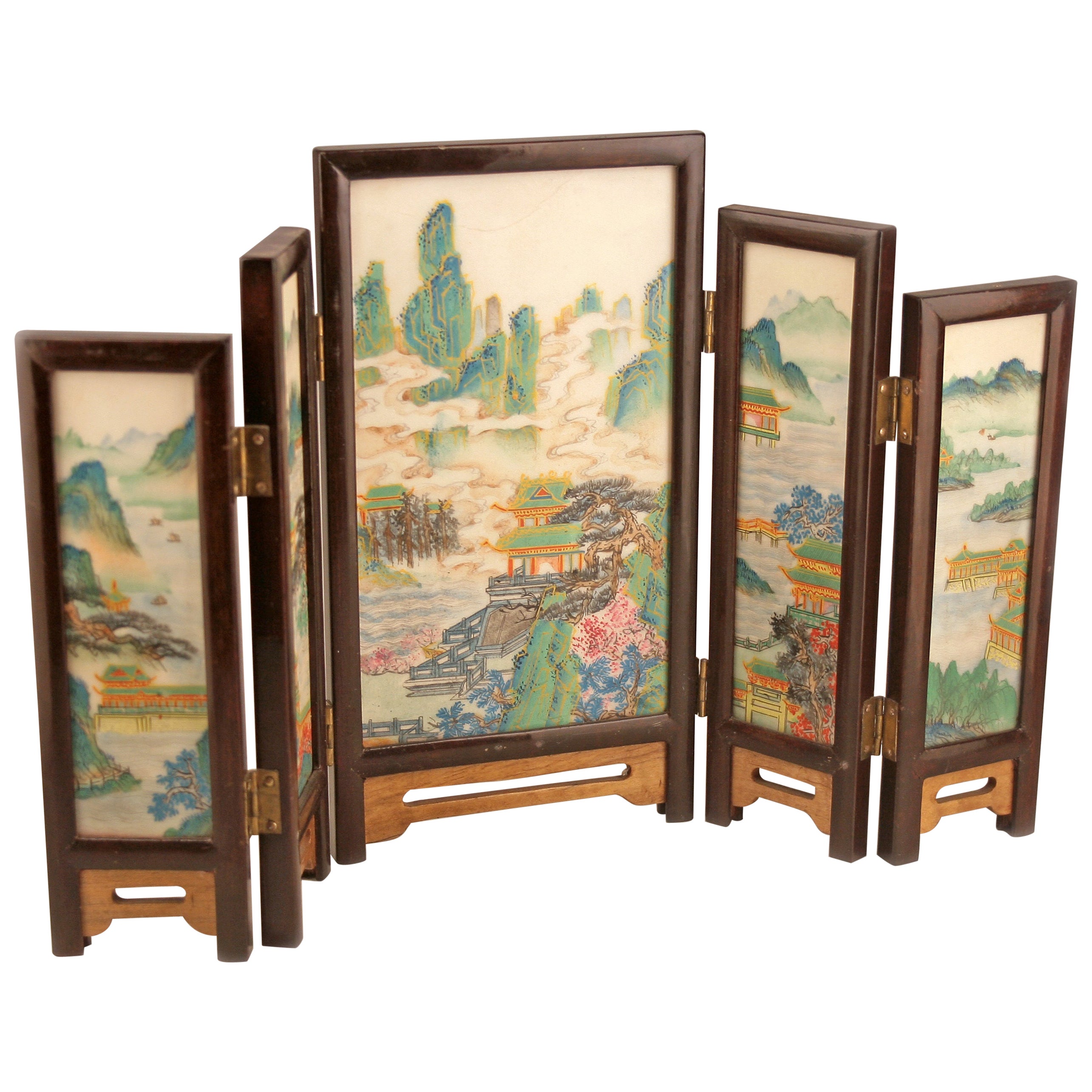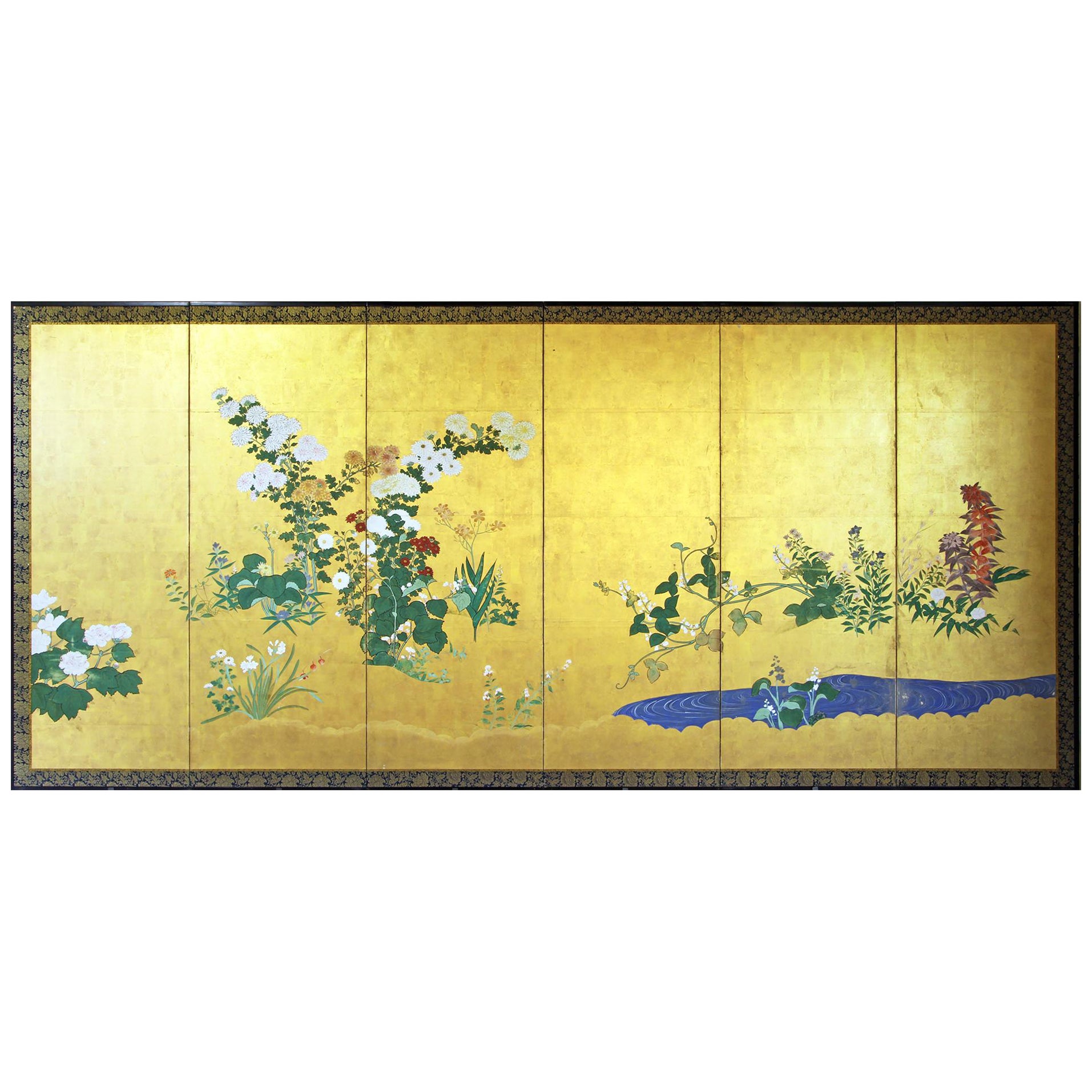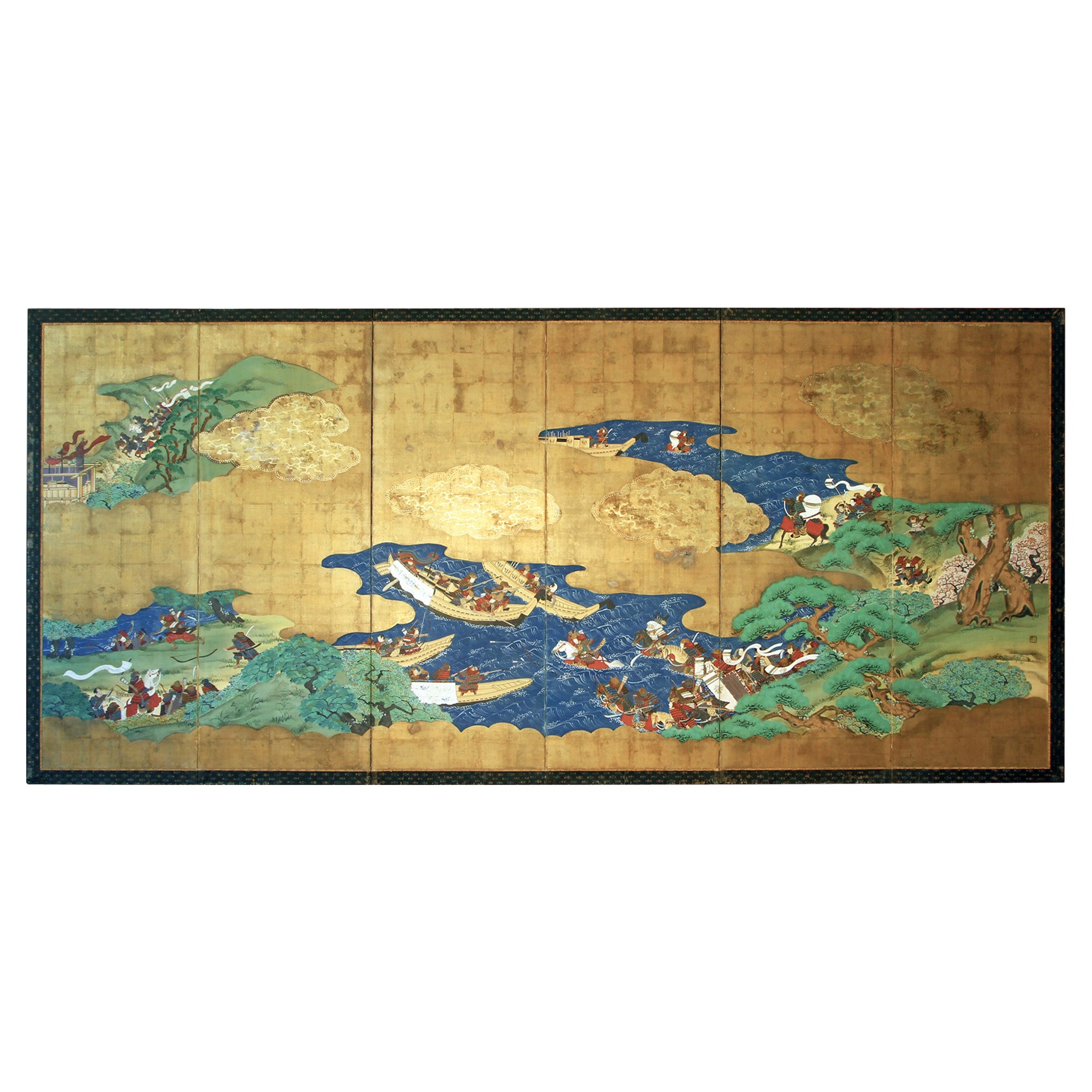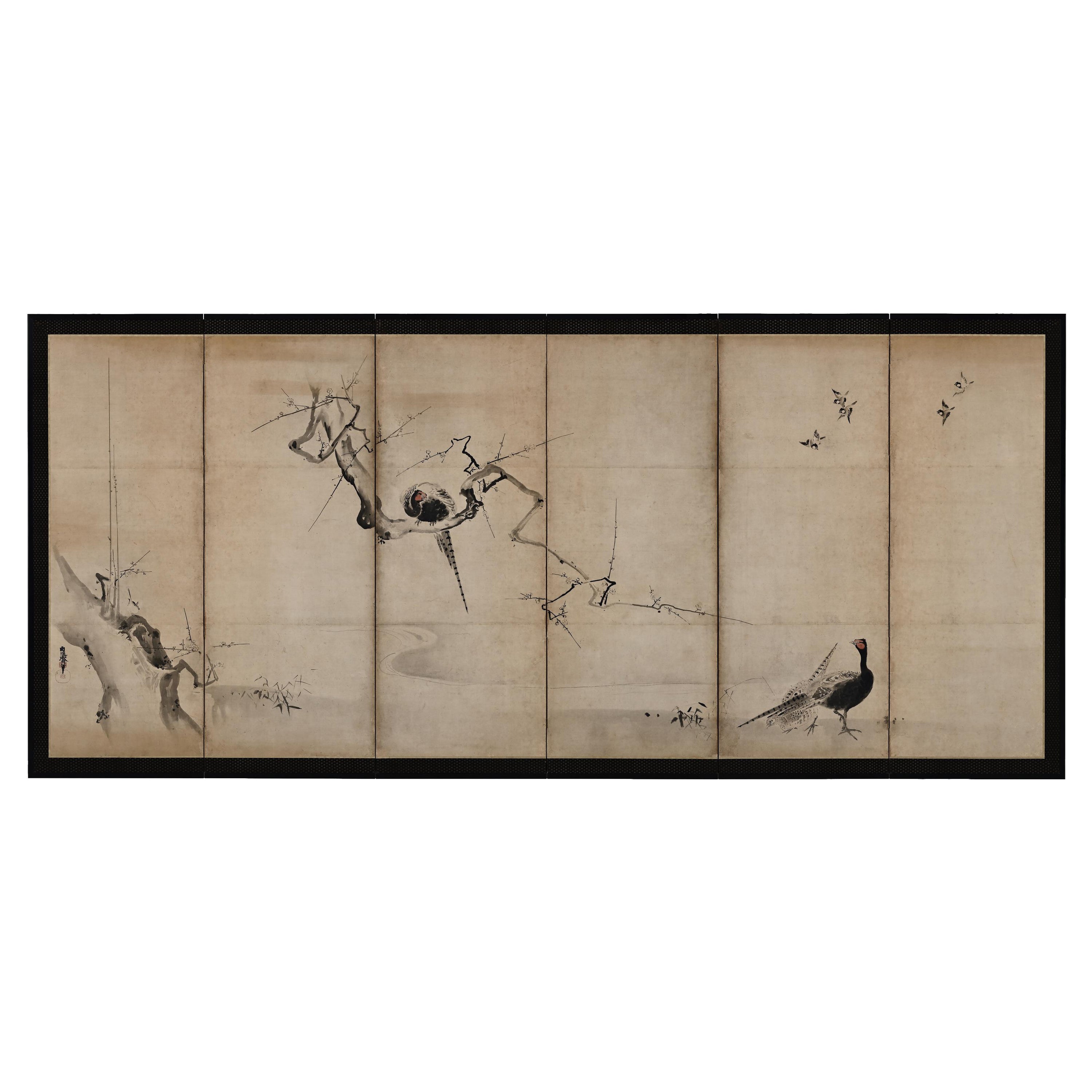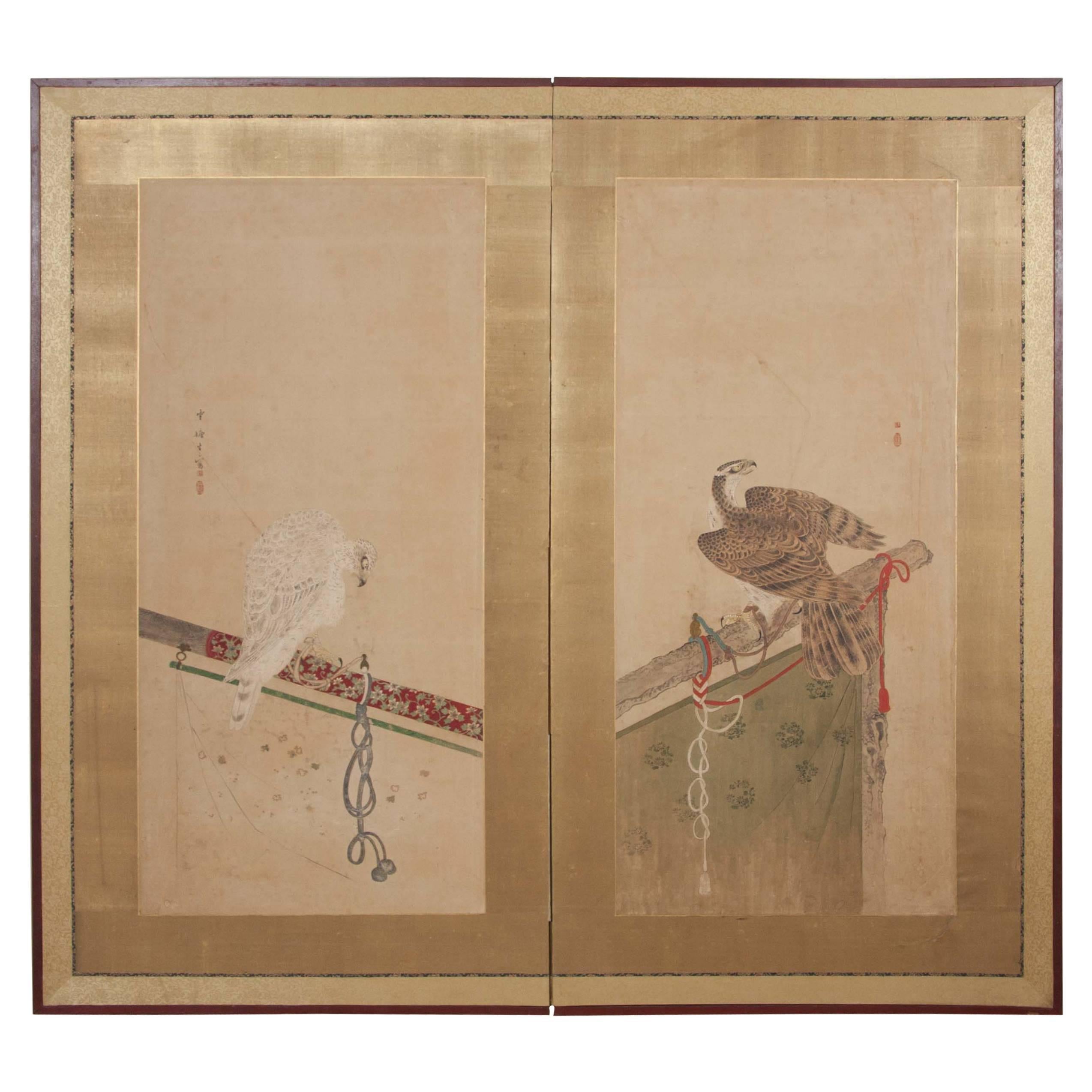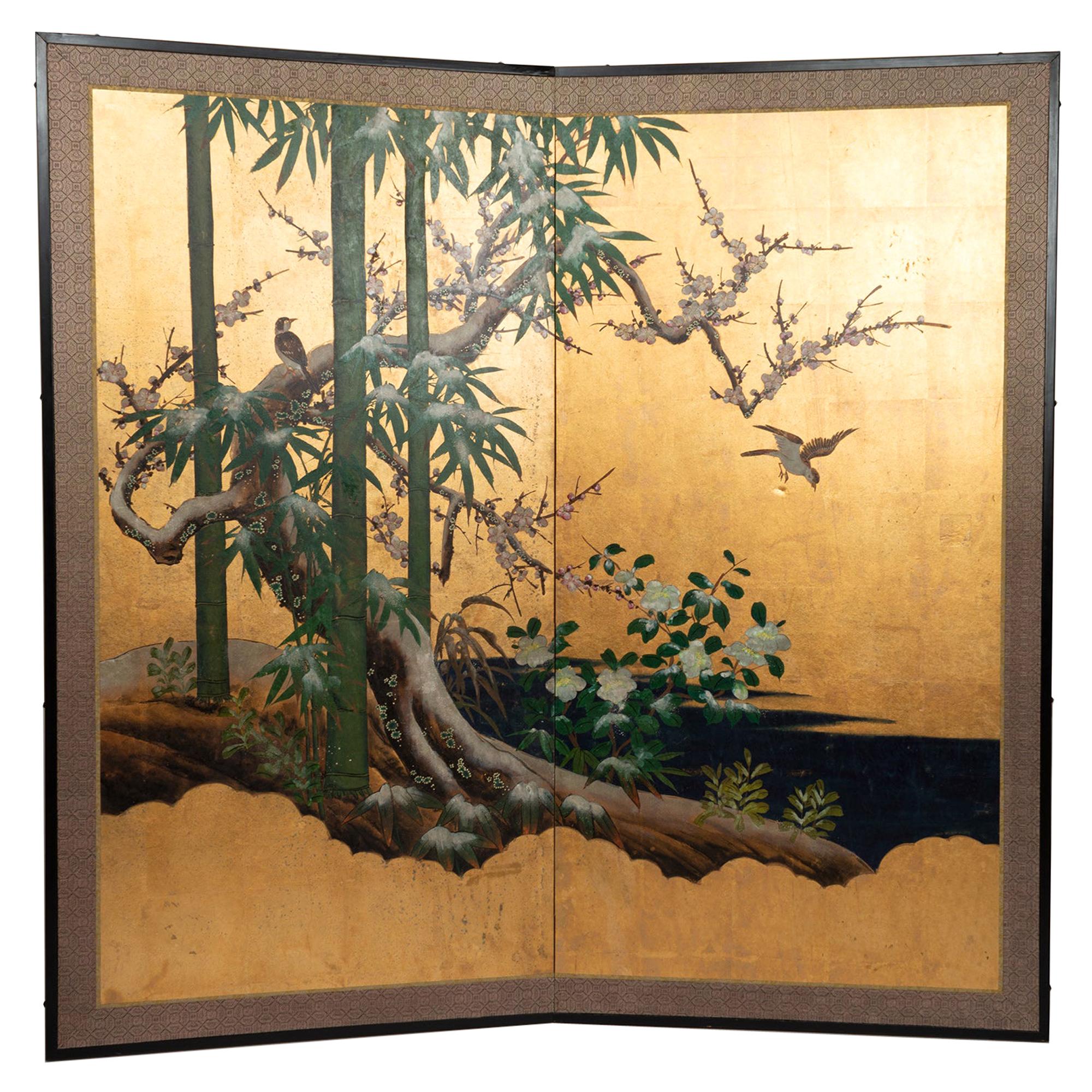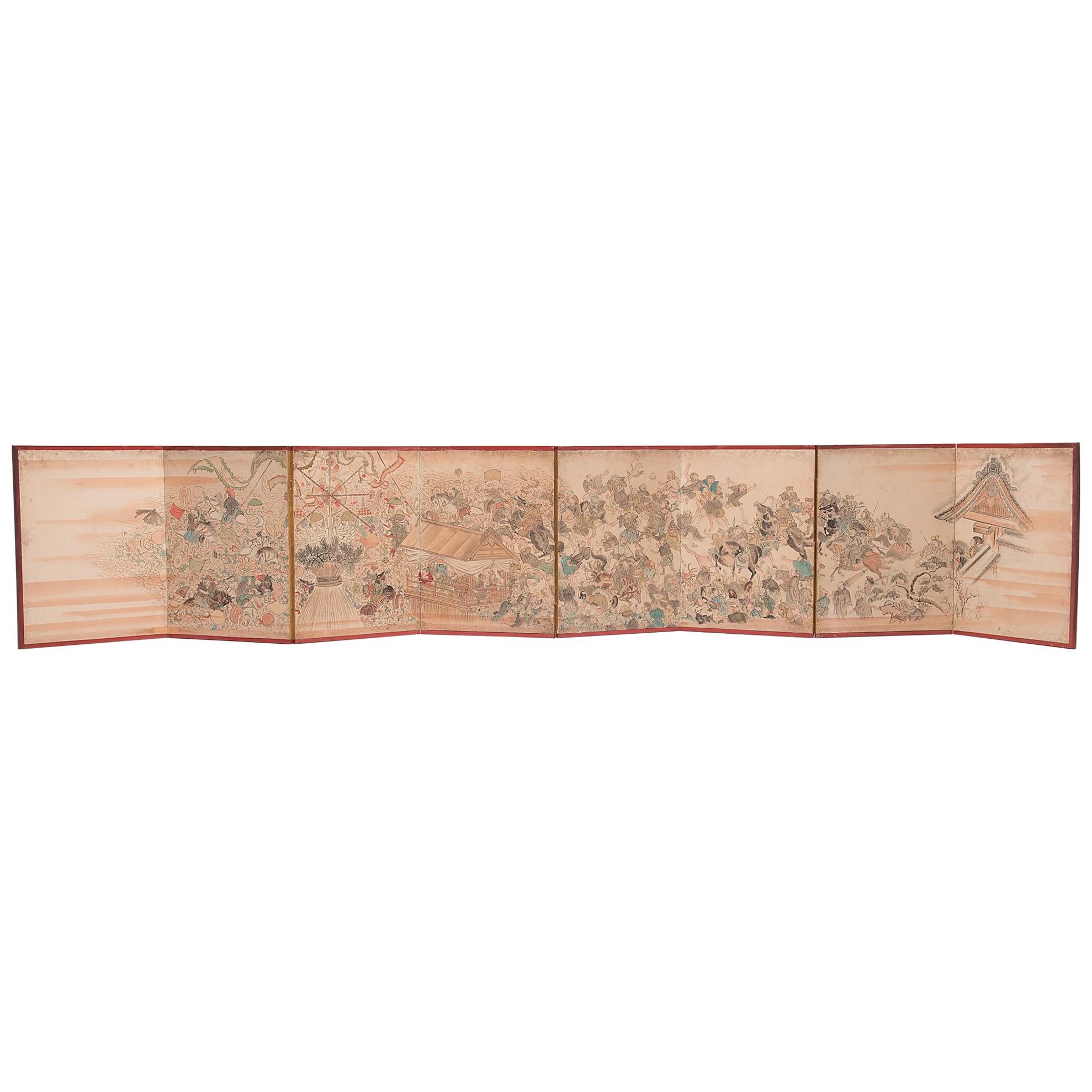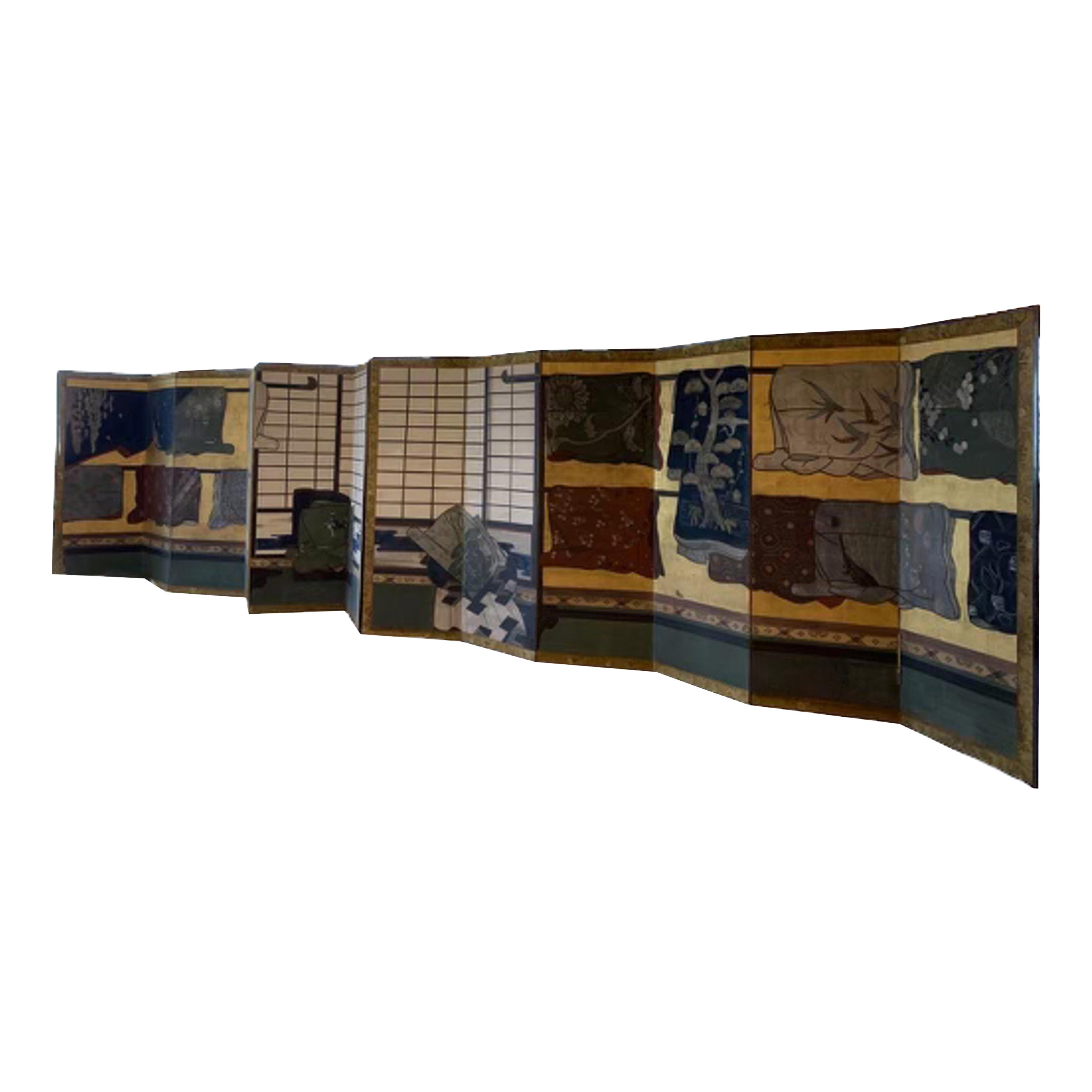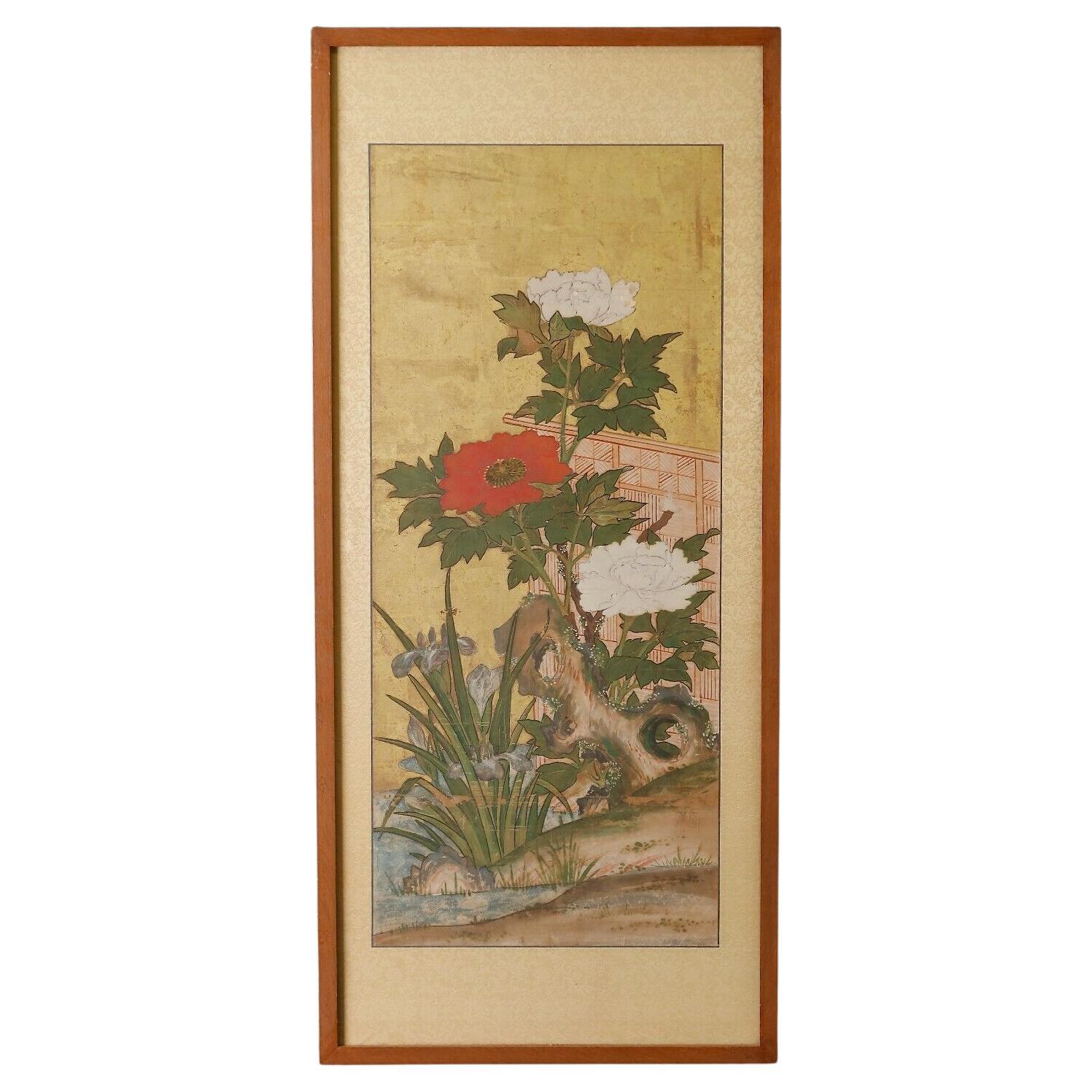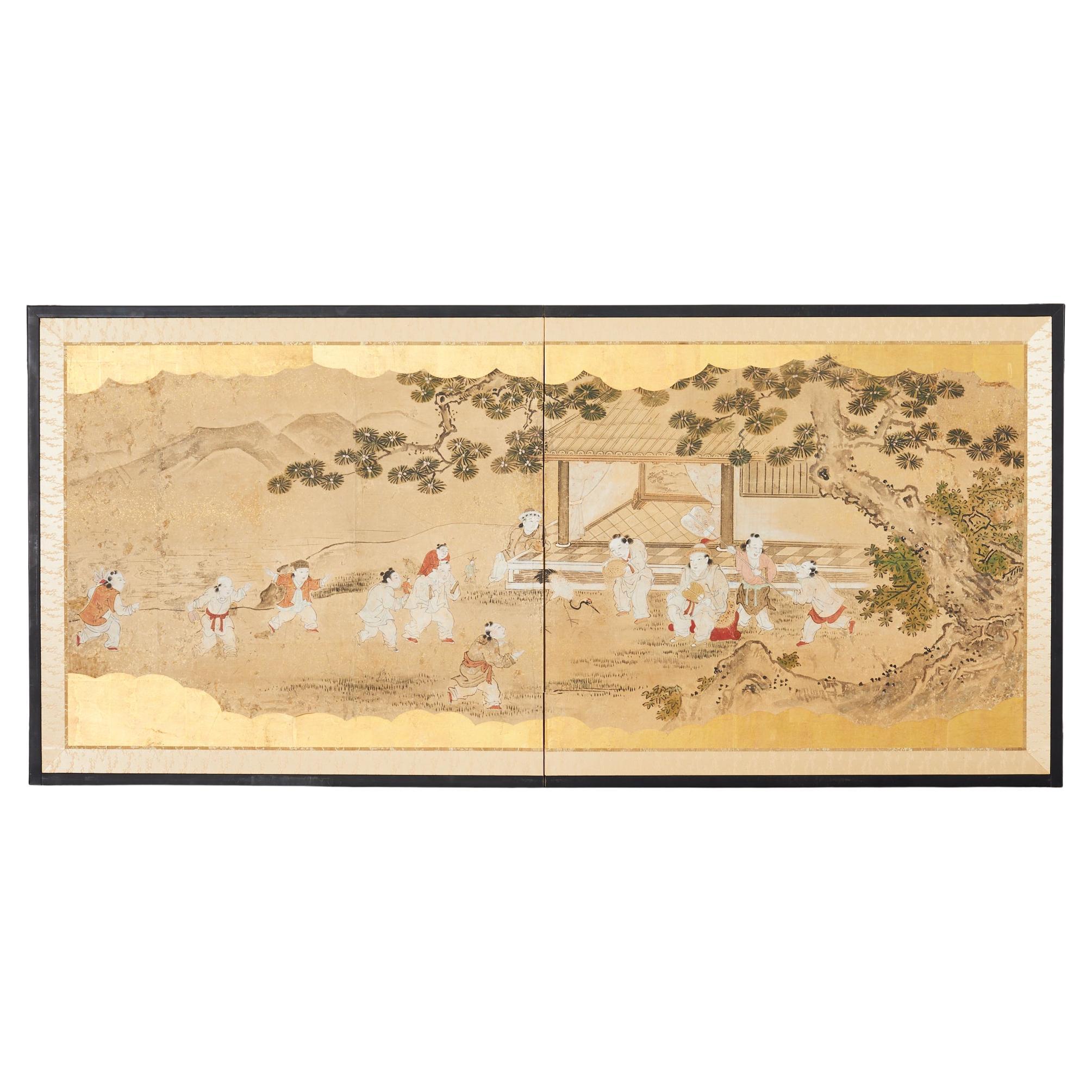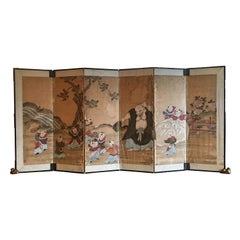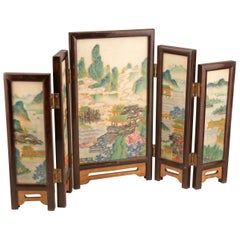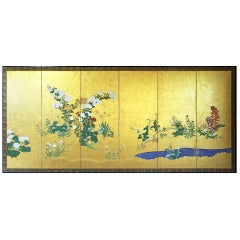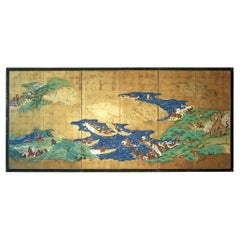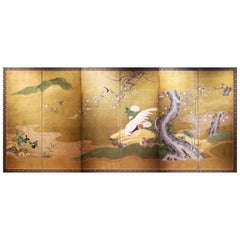
Early 19th, Japanese Folding Screen with Birds and Plum Trees, Edo period
View Similar Items
1 of 9
Early 19th, Japanese Folding Screen with Birds and Plum Trees, Edo period
About the Item
- Dimensions:Height: 67.72 in (172 cm)Width: 145.67 in (370 cm)Depth: 0.79 in (2 cm)
- Style:Edo (Of the Period)
- Materials and Techniques:
- Place of Origin:
- Period:
- Date of Manufacture:1820
- Condition:Wear consistent with age and use.
- Seller Location:Central Hong-Kong, HK
- Reference Number:Seller: LS1211stDibs: LU2554310725543
Authenticity Guarantee
In the unlikely event there’s an issue with an item’s authenticity, contact us within 1 year for a full refund. DetailsMoney-Back Guarantee
If your item is not as described, is damaged in transit, or does not arrive, contact us within 7 days for a full refund. Details24-Hour Cancellation
You have a 24-hour grace period in which to reconsider your purchase, with no questions asked.Vetted Professional Sellers
Our world-class sellers must adhere to strict standards for service and quality, maintaining the integrity of our listings.Price-Match Guarantee
If you find that a seller listed the same item for a lower price elsewhere, we’ll match it.Trusted Global Delivery
Our best-in-class carrier network provides specialized shipping options worldwide, including custom delivery.You May Also Like
Japanese Six Panel Screen with Hotei, Edo Period, Early 19th Century
Located in Austin, TX
A delightful Japanese six panel painted paper screen featuring the beloved figure Hotei, Edo Period, early 19th century.
Hotei, called Budai in China, and known as the Laughing Buddha or Fat Buddha in the West, is considered to be an emanation of Maitreya, the Buddha of the Future.
In Japan, he also holds a special place as one of the Seven Lucky Gods, being the god of fortune, and protector of children.
He is always portrayed as a mirthful and corpulent man, dressed in loose robes that show off his round belly. He carries a sack with him, said to be filled with treasure. As the protector of children, he is often portrayed with them playing on or around him, as he is here. The children portrayed in this screen are dressed in Chinese style clothing...
Category
Antique Early 19th Century Japanese Edo Paintings and Screens
Materials
Silk, Paper
19th C. Edo-Meiji Period Japanese Painted Five-Panel Folding Miniature Screen
Located in North Miami, FL
19th century/Edo-Meiji period japanese painted five-panel folding miniature screen
By: unknown
Material: lacquer, metal, paint, wood
Technique: carved, hand-carved, hand-painted, la...
Category
Antique 19th Century Japanese Meiji Paintings and Screens
Materials
Metal
Edo Landscape Japanese Folding Screen
By Japanese Studio
Located in Brescia, IT
Refined work by a painter from the first half of the 19th century, from the landscape of the "Rinpa" school by a painter from the end of the 18th century, the Rinpa school.
Six panels painted in ink on gold leaf and "gofun" on vegetable paper.
The flowers are made with the "gofun" technique, natural or pigmented white oyster powder.
Rinpa is one of the major historical schools of Japanese painting. The style was consolidated by the brothers Ogata Korin (1658–1716) and Ogata Kenzan (1663–1743).
This folding screen has a very clean design that leaves plenty of room for the beautiful golden landscape.
It comes flat and you can easily hang it with our hooks.
Lucio Morini...
Category
Antique 18th Century Japanese Edo Paintings and Screens
Materials
Gold Leaf
Edo 19th Century Japanese Folding Screen Six Panels Battle of Menpei
By Japanese Studio
Located in Brescia, IT
Samurai on horseback and by boat from the famous battle of Menpei Japanese folding screen six-panel of "Tosa School" painted with mineral pigments on vegetable on golden silk , earl...
Category
Antique Early 19th Century Japanese Edo Paintings and Screens
Materials
Gold Leaf
Japanese "Magpie and Peony" Two Panel Screen, Edo Period, 18th/19th century
Located in Austin, TX
A sublime Japanese two panel "Magpie and Peony" screen, ink and color on paper, Edo Period, late 18th or early 19th century, circa 1800, Japan.
The two panel screen features a wond...
Category
Antique Early 19th Century Japanese Edo Paintings and Screens
Materials
Copper
17th Century Japanese Screen. Ink Plum Tree & Birds by Kano Naonobu.
Located in Kyoto, JP
Kano Naonobu (1607-1650)
Plum Tree and Birds
Six-fold Japanese Screen. Ink and slight color on paper.
In this evocative ink work spread over a six-panel folding screen, we see the consummation of the elegance and refinement of the Edo Kano school. This 17th century screen is a rare surviving example of a large-scale bird and flower painting by Kano Naonobu, the younger brother of Kano Tanyu...
Category
Antique 17th Century Japanese Edo Paintings and Screens
Materials
Wood, Paper
Recently Viewed
View AllMore Ways To Browse
Antique Chinese Folding Screens
Chinese Plum Painting
Edo Period Folding Screens
Asian Folding Screen Birds
Antique Wood Ducks
Antique Chinese Ducks
Asian Screen Ducks
Chinese Plum Tree Painting
Japanese Screens Trees Flowers Birds
Rare Antiquities
Chinese Brown Pottery
Stone Antiquity
Head Antiquity
Han Dynasty
15th Century Japan
Vietnam Blue
Antique Hong Kong
Iron Antiquity

